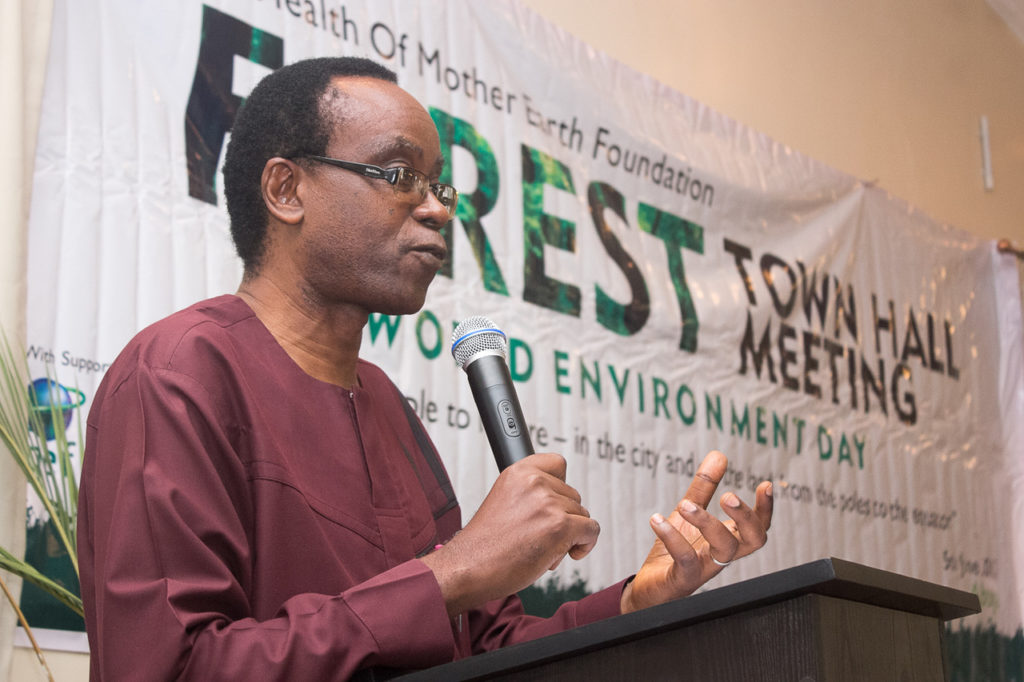The announcement of the nomination of Agnes Kalibata as the Special Envoy of the UN Secretary-General to the 2021 UN Food Summit is very troubling. It is not a shock because of the person of Kalibata but because of the office she occupies as the President of the Alliance for a Green Revolution in Africa (AGRA). It is a shock because AGRA stands in stark contradistinction to some fundamental positions of UN agencies such as the Food and Agriculture Organisation (FAO).

The FAO leans towards the promotion of agricultural systems that are in harmony with Nature as opposed to systems that erode biodiversity and force farmers to depend on artificial and chemical inputs. For example, the FAO launched an initiative to scale up Agroecology as a key pathway of supporting the SDGs.
An important International Symposium on Agroecology organised by the FAO in 2014 was attended by six UN organisations, 700 participants from 72 countries and 350 civil society organisations and NGOs. The symposium considered diverse ways by which Agroecology can be enhanced around the world to contribute to realising the SDGs.
The benefits of agroecology were pointed out as including food security and nutrition, resilience, promoting health, protecting biodiversity and soil fertility, and mitigating climate change. During the symposium, the FAO Director-General Graziano da Silva, noted that it strengthens “the role of family and small-scale farmers, fisher folk, pastoralists, women and youth.” At the end of the symposium the participants endorsed the launch of the Scaling up Agroecology Initiative and demanded that FAO should develop a ten-year plan for implementation.
After over 10 years of the existence of AGRA, it is hard to find any evidence that a so-called green revolution is happening in Africa. According to Timothy Wise, “AGRA’s stated goals are to double yields and incomes for 30 million farming households by 2020. Despite millions of dollars spent by AGRA since 2006, few comprehensive evaluations of AGRA have been made available. An additional $30 billion was recently pledged at the African Green Revolution Forum to continue AGRA’s work and help launch the organisation’s new strategic vision, without a clear understanding of how effective AGRA has been in increasing agricultural productivity and adoption of green revolution technologies and reducing poverty and malnutrition in the countries over the past decade.”
Critics see AGRA as a body that uses all the right language in framing its work as supporting small scale farmers whereas the reality is that its approaches promote the strategies of big business and the promoters of genetic engineering. AGRA has not categorically denied leaning on genetic engineering but like the International Institute for Tropical Agriculture (IITA) they would claim that they don’t rule out technologies. This is duplicity of focus – posing as a supporter of small-scale farmers working with Nature while in reality working with systems that fight Nature and undercut the resilience of local ecosystems.
This is why the elevation of the President of AGRA to be the Special Envoy of the Secretary-General of the UN to the UN Food Summit is a loud endorsement of genetic engineering in agriculture and is highly worrisome. The move is rightly seen as a route to “hijacking the agenda and silencing the voices of African farmers and environmentalists while catering to the profits of agri-business.”
Unfortunately, big capital, such as that wielded by Bill and Melinda Gates Foundation, the parents of AGRA, has shut the ears and hearts and governments from paying attention to the people. They promote agri-business, negate local knowledge and food systems, and promote systems that are ultimately inimical to the best needs of local farmers.
We are convinced that the UN Secretary-General can better be represented by persons that would promote Agroecology and systems that would protect global biodiversity, tackle hunger and fight global warming.
At this point in time, a Special Envoy should be someone that would clearly show support for the implementation of the International Assessment of Agricultural Knowledge, Science and Technology for Development (IAASTD). The findings of IAASTD were captured in the report (2008) titled Agriculture at the Crossroads. The report clearly showed that the future of food supply in the world will depend on the production from small-scale farmers as opposed to industrial agriculture and those applying genetically engineered organisms (GMOs).
A special envoy of the UN Secretary-General should be someone who would demand that African governments implement the decision of The African Union’s (AU) Maputo Declaration, better known as CAADP. That Declaration was officially adopted by member states in 2003 with the requirement that each country should allocate at least 10% of their annual budgets to agriculture by 2015. Only a handful African countries have met this target with the continental average standing at about 5%.
AGRA is not the face of agriculture in Africa and cannot speak in our name or represent us in any way.
Nnimmo Bassey is Director, Health of Mother Earth Foundation (HOMEF)
